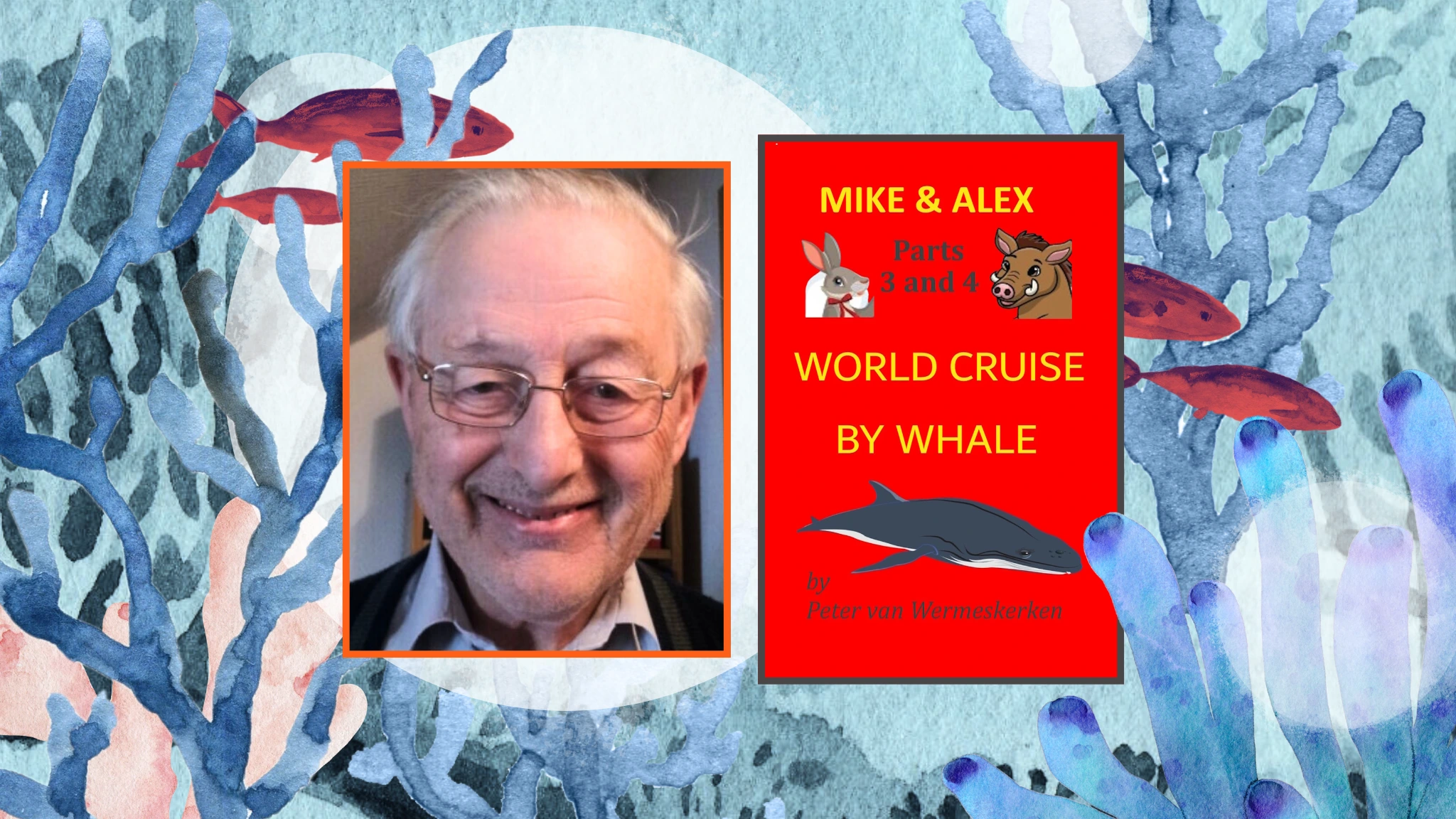Vienna regularly ranks among the world’s most livable cities. A long tradition of municipal government by Social Democrats has made for famously affordable housing and well-run infrastructure. There is also a level of diversity that conjures up nostalgic images of the Habsburg empire as a haven of tolerance, or what Joseph Roth called an Übernation containing many nations: 40 percent of Vienna’s residents were born abroad. The rest of the Alpine Republic—much of it significantly more conservative—isn’t so bad either. A 2022 poll in Der Standard found that a clear majority of Austrians approve of their quality of life as a whole.
Yet the far right prevailed in the recent Austrian parliamentary elections—a first in the country’s postwar history. The victorious Freedom Party (FPÖ) might not come to power, though. To the outrage of the far right and its supporters, President Alexander Van der Bellen, of the Green Party, has asked the biggest loser of the vote, sitting chancellor Karl Nehammer, of the center-right People’s Party (ÖVP), to form a new government. After weeks of “exploratory talks,” the ÖVP is now in official coalition negotiations with the Social Democrats (SPÖ)—whose vote remained stagnant, though it still came on top in Vienna—and a smaller party that mainly stands for classical liberalism. Nehammer did not rule out a coalition with the far right, but he refused to collaborate with the FPÖ’s leader, Herbert Kickl, a demagogue who, Trump-style, threatens adversaries with retribution.
Excluding the far right from office is not an easy strategy to pull off. As in other European countries—Germany, above all—it requires an ever larger number of parties to work together, producing little policy coherence but much infighting. This in turn allows the far right to gloat that the “establishment” is illegitimately holding on to power at all costs. The bickering has already begun in Austria. The Social Democrats, for instance, insist on a wealth tax, which their potential coalition partners reject outright.
The far right’s rise in Austria owes much, ironically, to the opposite strategy. During the first two decades of the twenty-first century, the ÖVP formed a coalition with the FPÖ, hoping to either make it more moderate or conclusively demonstrate its incompetence. The fact that neither happened holds lessons for Europe as a whole.
*
In the aftermath of World War II, Austrian society adopted a historical narrative straight out of The Sound of Music: they had been Hitler’s first victims. The Anschluss—enthusiastically welcomed by many Austrians—was recast in official accounts as German aggression. Denazification efforts were halfhearted at best. The bureaucracy put up high hurdles for the restitution of Jewish property, not to speak of citizenship.
In the postwar years the two main parties, the ÖVP and the SPÖ, sought stability through grand coalitions and an intricate system of mutual control. They divided up the state and parts of the economy according to the principle of Proporz: posts, from jobs in public television to state-owned companies, were distributed proportionally among the red (SPÖ) and the black (the Catholic-dominated ÖVP). As a famous joke went, every position required three people: a Christian Democrat, a Socialist, and someone to do the work.
Former Nazis, initially banned from political life, organized in the euphemistically named “Association of the Independents,” which in 1956 gave rise to the Freedom Party, which features the color blue. At first the FPÖ espoused a pan-German ideology, arguing that Austria lacked a proper national identity. After all, the Treaty of Versailles, in contravention of Wilsonian rhetoric of self-determination, had prohibited it from joining Germany, seemingly creating a nation without qualities.
It was the Social Democrat Bruno Kreisky, the towering political figure of the postwar period, who slowly brought the FPÖ into the system. A Jew who escaped to Sweden during the war, Kreisky believed that lingering antisemitism would prevent him from rising to the top in Austrian politics, leaving him always “the best second man.” He noticed that a wide swath of Austrians felt their country was stagnating under the imperative of stability über alles. In the early 1970s, seeking to end the era of grand coalitions, he formed a minority government, which the Freedom Party tolerated in exchange for an electoral reform that benefitted smaller parties.
Much more controversially, Kreisky also defended the FPÖ’s chairman, Friedrich Peter, when the high-profile “Nazi hunter” Simon Wiesenthal revealed his likely involvement in SS atrocities. The journalist Paul Lendvai, in his book Austria Behind the Mask—the best English-language guide to the country’s postwar politics—concludes that Kreisky denazified Peter, and that, in the eyes of certain voters, Peter freed Kreisky from Jewishness.1 Kreisky wanted to keep open the option of an outright coalition with the blue side, which materialized in the early 1980s. By that time the FPÖ boasted a relatively liberal leader who sought to rid it of what he called Kellernazis, “Nazis in the closet” who kept their beliefs private.
Apparently, FPÖ members were not happy. In 1986 Jörg Haider—the highly charismatic son of two committed Nazis and initially a pan-German who called Austria an ideological Missgeburt (monstrosity)—staged an intraparty coup and took the FPÖ in a sharply rightward direction. He railed against international criticism of the president, Kurt Waldheim, a former UN secretary general who was revealed to have been less than candid about his military service during the war. Haider himself shamelessly appealed to those nostalgic for the Third Reich. He praised its employment policies as “sound,” claimed that members of the Waffen SS were “decent,” and referred to concentration camps as “punishment camps.”
Statements like these both made his political fortunes and broke them. In 1999 the Social Democrats came first in parliamentary elections, followed by the FPÖ and ÖVP. The latter’s leader, Wolfgang Schüssel, reached out to the former to negotiate a coalition agreement but insisted that Haider—whose party got a fraction more votes—be excluded from the cabinet. (Schüssel himself became chancellor.) This deal provoked an outcry both in Austria and abroad: demonstrations in front of the Hofburg forced ministers to use tunnels to reach the swearing-in ceremony. Fourteen EU countries briefly imposed (largely symbolic) sanctions, which Schüssel cleverly used to engineer a nationalist backlash. Austria was again the victim of larger powers, especially Germany, which, together with France, took the lead in denouncing the alliance. In the fall of 2000 a committee of European elder statesmen recommended that the sanctions be lifted.
Haider—stewing in the provinces as governor of Carinthia—could not bear being excluded from power for long. He loudly criticized his own party’s cabinet members for not keeping their promises to their voters; indeed, the FPÖ largely failed to implement its agenda and was consumed by very public infighting. One of its strongest claims—that Proporz had produced widespread corruption—was discredited when prominent figures, including Haider and longtime finance minister Karl-Heinz Grasser, were mired in a series of financial scandals. It now appeared as if Schüssel had not so much opportunistically enabled the far right as mastered the art of “destruction through inclusion.”
Yet the party recovered. In 2008 Haider was killed in a car crash in Carinthia (where an astounding cult of “our Jörg” still persists). The FPÖ distanced itself from its ex-leader, who had formed a breakaway party in 2005. Its new head, Heinz-Christian Strache, was a former dental technician who lacked Haider’s intellect and charisma—though he had also moved in neo-Nazi circles. Strache got lucky: a ridiculously young upstart, Sebastian Kurz, took it upon himself to end another era of grand centrist coalitions and bring the far right back in.
A law school dropout, Kurz joined the ÖVP’s youth league, acquired national notoriety after leading an (unsuccessful) campaign in Vienna with the slogan “black makes you horny,” and was appointed foreign minister by the age of twenty-seven. Seemingly for no other reason than personal ambition, he then worked behind the scenes to bring down his party leader and end the coalition with the Socialists. Surrounded by a group of young, fiercely loyal, and media-savvy men, he transformed one of Europe’s oldest conservative parties into his personal vehicle: in 2017, the ÖVP acquired a new color, turquoise, and rebranded itself as the “Sebastian Kurz List.”
That same year, Kurz triumphed at the polls and entered a coalition with Strache as junior partner. There was no outcry from Austrian or European elites, who by then had failed to keep the far right out of office in Hungary and Poland. This time, the FPÖ was not obviously incompetent; rather it all too competently wielded power against its enemies. Kickl, then interior minister, sent a police unit normally charged with fighting street crime to search the headquarters of the central intelligence agency while it was investigating the “Identitarian” movement—a group of young far-right activists for whom he had frequently signaled support. Subsequently, several foreign intelligence agencies stopped sharing information with the Austrians.
Then the FPÖ received a blow that many assumed would be fatal. In 2017 a self-declared “security advisor,” financed by a Vienna-based lawyer who claimed to have acted on his own initiative, secretly filmed Strache and another party leader in a villa in Ibiza. There, the two politicians promised to exchange state contracts for illegal donations from a woman they assumed to be the niece of a Russian oligarch; they also gleefully said they would spend her money on taking over Austria’s largest tabloid, the enormously influential Kronen Zeitung. Strache resigned; the coalition fell apart; his party crashed in new elections. Kurz came back to power after forging an alliance with the Green party, a coalition that lasted until this year’s elections. (The investigator was later imprisoned for dealing cocaine. According to research by the highly regarded German investigative website Correctiv, parts of the Austrian bureaucracy loyal to Strache may have been behind the doubtful case.)
In 2021 the Ibiza affair also caught up with the wunderkind of Austrian politics, who had come to be admired by conservatives across Europe. A parliamentary committee investigating the affair charged Kurz with felony for deceiving deputies. Officials confiscated a high-ranking ally’s cell phone, which contained around 300,000 messages revealing how he and his political circle had placed cronies in lucrative positions in state companies, effectively bought favorable media coverage with public funds, and manipulated polls. Austria, it seemed, was in danger of becoming a milder version of Viktor Orbán’s Hungary.
Kurz was handed an eight-month suspended sentence (his appeal is pending) and eventually quit politics. Now he is a “global strategist” at Peter Thiel’s private investment firm.
*
It’s conventional wisdom that the Kremlin extensively supports the European far right. In 2014 a Russian bank infamously gave Marine Le Pen’s National Front a loan to help it campaign; three years later the FPÖ signed a cooperation agreement with the Putinist United Russia Party. In Austria, however, politicians of different ideological persuasions are also selling their services to Russia. A former Social Democratic chancellor, Alfred Gusenbauer, was apparently part of Paul Manafort’s “Hapsburg group” of lobbyists helping the pro-Putin strongman Viktor Yanukovych in Ukraine. Kurz’s immediate predecessor, Christian Kern, later worked for the Russian State Railways. An associate of the Russian oligarch Oleg Deripaska, who resides in Vienna and is under US sanctions, asked Kurz to lobby for Deripaska. It remains unclear whether Kurz complied; at one point he replied to say, without further elaboration, that a trip to the US had been “very, very good.”
The center right and far right have converged in other ways as well. Initially Schüssel appeared to be an antipopulist Machiavelli (who, incidentally, also ended up with a lucrative Russian engagement). Today it’s clear that his party is keen to keep the far right in political play no matter how often FPÖ scandals erupt. In 2018, for instance, the Austrian weekly Falter revealed that a leading FPÖ figure was in a student fraternity—in Austria, people remain in such organizations after university—whose cherished “songbooks” included the line “Step on the gas, you ancient Germanic peoples, we’ll manage the seventh million.” Earlier this year, FPÖ candidates were observed singing an SS song at a funeral.
Normalization partly explains the outcome of the recent elections, in which the Freedom Party ran a seemingly schizophrenic campaign. On the one hand, Kickl eschewed dog whistles for foghorns. The party’s program was simply named “Fortress Austria.” Calls for “remigration” and endorsements of the great replacement conspiracy theory—according to which nefarious “globalists” are inviting Muslims to replace “real Europeans”—were ubiquitous at rallies. Kickl repeatedly alluded to a list of two thousand suspects whom the FPÖ would go after once in power. Most strikingly, he presented himself as the Volkskanzler, an expression the Nazis regularly used for Hitler, implying that other chancellors do not really represent the people. If the ÖVP and other parties do form a new coalition that excludes the FPÖ, Kickl will no doubt double down on this rhetoric.
On the other hand, some of the party’s slogans were curiously anodyne and devoid of policy substance: “Your Will Be Done,” “Your Heart Says Yes,” and “Five Good Years.” These mean nothing, and yet can be read as promising everything, including, of course, the implementation of the genuine will of the people. In October professional observers in Vienna told me that the campaign had spoken effectively to citizens discontented with the main incumbent, the ÖVP. Kickl, a onetime advocate of ivermectin, appears to have benefited from a widespread sense that governance during the pandemic was incompetent. Unlike the leaders of other far-right parties in Europe, he also considerably narrowed the gender gap. One explanation might be that women were particularly hard hit by the pandemic (the FPÖ did best among women between thirty-five and fifty-nine). Meanwhile, the Social Democrats turned voters off with incessant infighting.
What are the lessons for contemporary European politics? Not every democracy aiming at consensus and stability must lead to cronyism (and not all political career paths have to lead to Russia). But when a supposedly responsible political class proves itself keen on self-enrichment, the resulting scandals provide an opening for self-declared “anti-system parties.”
In his recent book Democracy Erodes from the Top, the American political scientist Larry Bartels argues that it is a mistake to assume that an unstoppable “populist wave” is rolling across the West.2 People do not wake up one fine morning and decide to embrace the populist far right. Rather, in some countries—think of Germany, Spain, and Portugal—citizens who had far-right views but were not mobilized before now find something on offer to like. Once they commit to the far right, that identification does not change easily. But, more important still, the center right is teaching its traditional electorate that extremist views are perfectly normal. Instead of fixating on the “populist wave,” we should keep a close eye on conservative elites. As The Sound of Music taught all along, choices about collaboration matter.



















 English (US) ·
English (US) ·